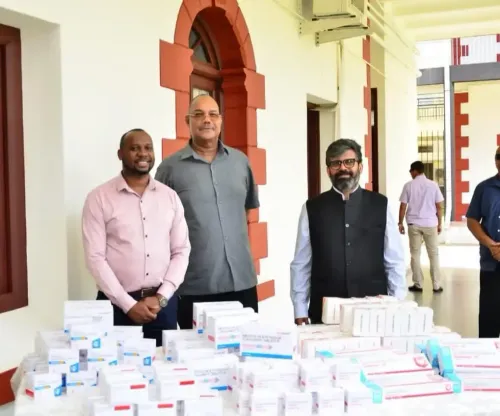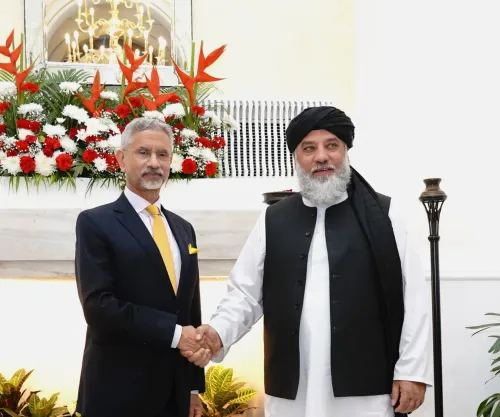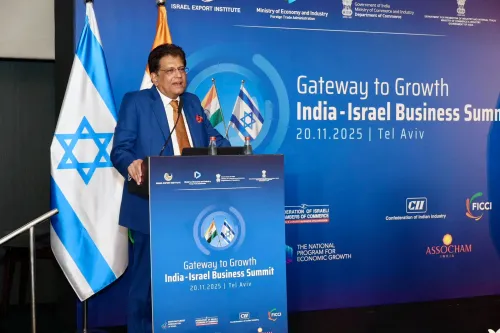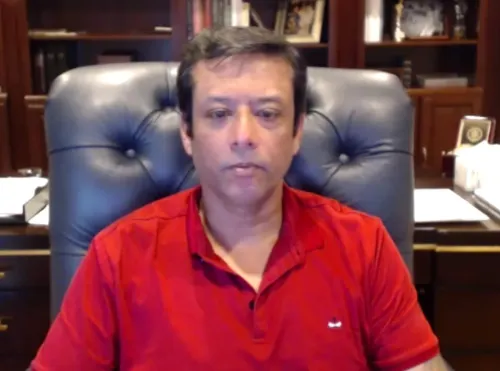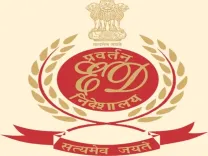Do Sovereign Countries Have the Right to Choose Trading Partners? Russia Supports India Amid Trump’s Tariff Threats
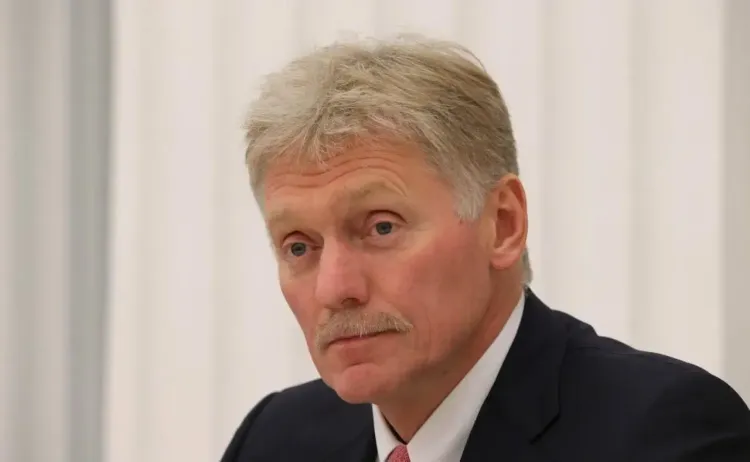
Synopsis
Key Takeaways
- Russia supports India’s trading autonomy.
- US tariffs threaten economic relations.
- India aims to ensure energy security.
- Geopolitical tensions impact global trade.
- Countries must navigate complex trade dynamics.
Moscow, Aug 5 (NationPress) On Tuesday, Russia expressed its support for India while criticizing US President Donald Trump for his threats to raise tariffs on New Delhi due to its oil purchases from Moscow. Russia asserted that sovereign nations must have the right to select their trading partners.
During a regular press briefing, Dmitry Peskov, the Press Secretary of the Russian President, remarked that Russia has acknowledged the US threats against India but does not regard them as legitimate. He stressed that countries should have the autonomy to choose their trading partners based on their individual interests.
“Russia acknowledges the US threats towards India, yet does not deem such statements as legitimate. Sovereign countries must possess the right to select their own trading partners, engage in trade and economic cooperation, and establish the regimes that serve their national interests,” Peskov was quoted by the state-owned news agency TASS.
The Kremlin's reaction followed Trump's warning about significantly increasing tariffs on India for its oil imports from Russia. “India is not only acquiring substantial amounts of Russian oil, but they are also reselling much of it on the open market for considerable profits. They show no regard for the casualties in Ukraine caused by the Russian military,” Trump wrote in a social media post.
“As a consequence of this, I will be substantially raising the tariffs that India pays to the USA,” he added.
In response to Trump's threats of hefty tariffs on New Delhi, the Indian government stated on Monday that the US targeting over oil purchases from Russia is unjustified and unreasonable. A spokesperson for the Ministry of External Affairs (MEA) declared that like any significant economy, “India will implement all necessary measures to protect its national interests and economic security.”
The Indian government indicated that it has faced scrutiny from both the United States and the European Union for its oil imports from Russia since the onset of the Ukraine conflict.
“In fact, India commenced these imports from Russia as traditional supplies were redirected to Europe following the outbreak of the conflict. At that time, the United States actively encouraged India’s imports to bolster global energy market stability,” the Centre emphasized.
“India’s imports are aimed at ensuring stable and affordable energy prices for Indian consumers. They are a necessity driven by the global market situation. It is notable that the very nations criticizing India are also engaging in trade with Russia, and unlike India's case, such commerce is not a vital national necessity,” the government pointed out.
According to the Indian government, the European Union had a bilateral trade with Russia worth Euro 67.5 billion in goods in 2024. Additionally, it had an estimated trade in services valued at Euro 17.2 billion in 2023.
“This figure far exceeds India’s total trade with Russia for that year or the subsequent ones. European imports of LNG in 2024 hit a record 16.5 million tonnes, surpassing the previous record of 15.21 million tonnes set in 2022. Trade between Europe and Russia includes not just energy but also fertilizers, mining products, chemicals, iron and steel, and machinery and transport equipment,” stated the official communication.
The government also noted that the United States continues to import uranium hexafluoride from Russia for its nuclear industry, as well as palladium for its electric vehicle sector, fertilizers, and chemicals.
“In this context, the targeting of India is unjustified and unreasonable. Like any major economy, India will take all necessary measures to safeguard its national interests and economic security,” the MEA statement concluded.

